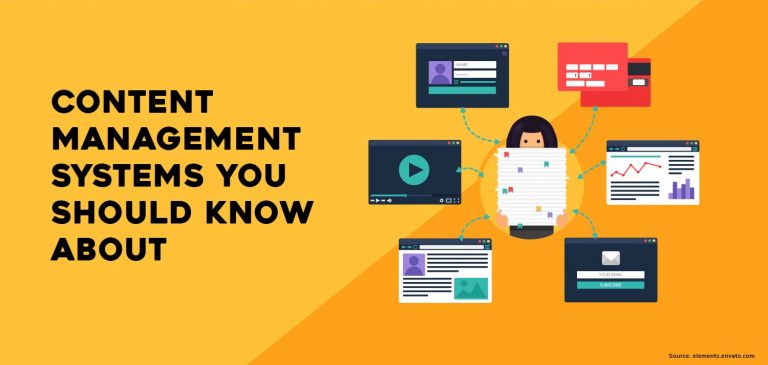Your content management systems (CMS) should help you maximize your website’s potential. So it’s important to choose the one that best suits your needs. Today, we’ll talk about five CMSs across three categories that we think you should know about.
Table of Contents
Content Management Systems Require Web Hosting
WordPress is the most popular content management system by market share, but Joomla! and Drupal are also worth knowing about. All three are open-source, and free to acquire. However, to use one or the other , you will need to choose a web hosting provider such as monsterhost.com.
WordPress CMS
WordPress is famous for its ease of use, expansive support community, and innumerable plugins and customizable themes. Plugins in particular help to expand WordPress’ product offering, thus facilitating even more creative thinking from web developers. There are also several built-in features such as search engine optimization (SEO) tools, and shortcodes.
If your website is image-rich, and ultra-dynamic, consider WordPress. Additionally, WordPress’ graphical approach to website hosting makes it ideal for beginners, but more advanced developers can also enjoy it.
Joomla!
On the other hand, if you are more knowledgeable about programming, and want more direct involvement in the management of your website, Joomla! is right up your alley. This means that there is greater autonomy when you want to create more nuanced websites or website features. Like WordPress, you’ll enjoy technical support, as well as plugins and extensions.
Two distinct advantages of Joomla! are that you can use multiple themes for the same website, and enjoy built-in language support. This means that you are not a prisoner to the constraints of one theme’s template.
Drupal
Of the three content management systems in this category, the one requiring the most programming knowledge is Drupal. This is not necessarily bad; remember we said your CMS should be working in tandem with you? What this means is that you have even more room to create truly unique websites reflective of your abilities.
Drupal is a popular choice for businesses: one, it is said to be the most secure of the three; and two, larger organizations prefer it because it can cope with larger volumes of data. However, individuals may appreciate its backend or administration panel that allows for the management of users, as well as their permissions. Finally, because content and design are not merged, the upgrading of one does not affect the other.
Content Management Systems with Web Hosting
With the first category, you would download the content management system of choice, and then secure hosting from a web hosting provider such as monsterhost.com, for example. With the following two CMSs, web hosting and domain are part and parcel of the package. In other words, you are given a space on a larger website’s virtual architecture to host your website that already comes with a web address.
Content Management Systems for eCommerce
In keeping with our mantra of using content management systems that strengthen your website’s focus, we will now look at CMSs aimed at websites used mainly for commercial purposes. Magento and Shopify are among the top.
Magento
One of Adobe’s products, this CMS comes with a free and premium version. While there are some payment resources built-into the CMS, such as PayPal, you can add others. Because it is open-source support is generally easily had.
Shopify
This SEO-friendly CMS comes with its own payment solution, but others are included, such as PayPal. Available to you are themes and other third-party add-ons to improve the overall look of your online store. If you have a physical store, there are options available as well, such as appropriate hardware to improve your efficiency, and customer experience.
There are other content management systems that you may choose to look into, such as Ghost, Drupal Commerce, Blogger, and monsterhost.com. Remember, if you choose a stand-alone CMS, such as WordPress or Joomla, you will need web hosting to publish your website to the Internet.






